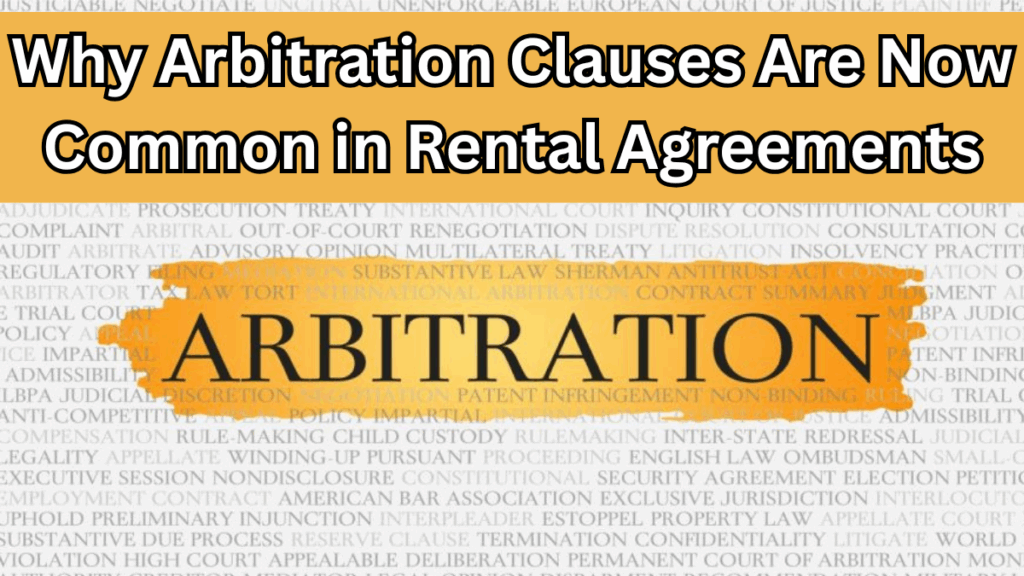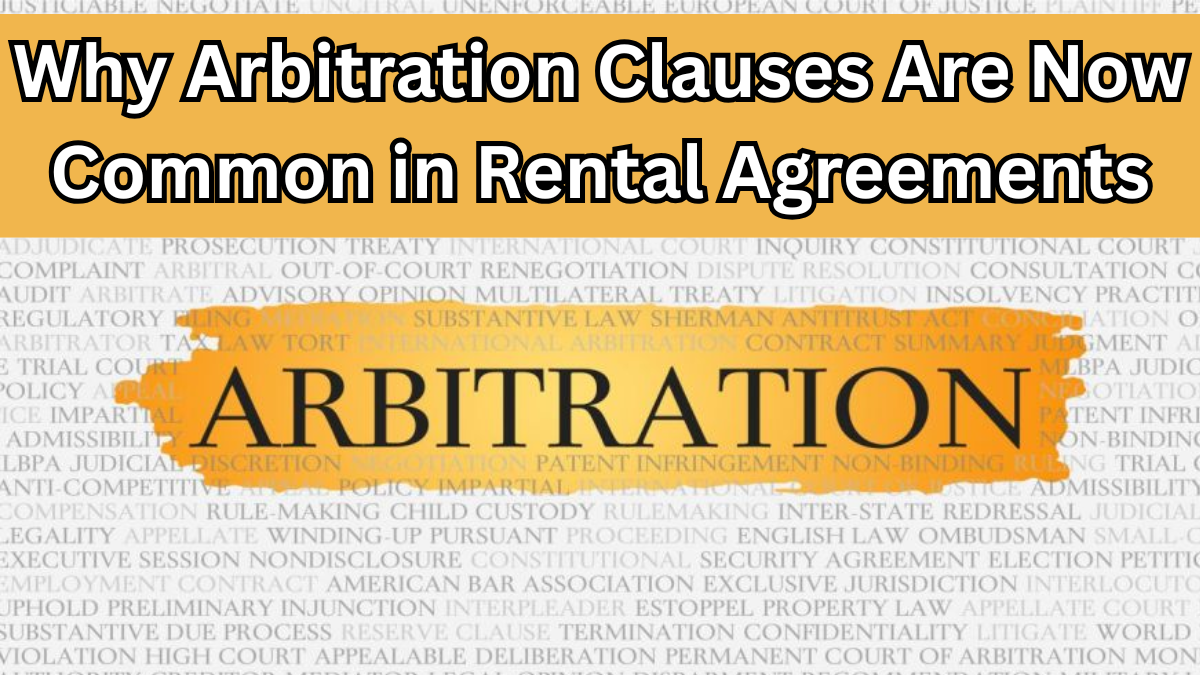In today’s rental market, landlords and tenants often face disputes — from delayed payments to property damages. Traditionally, these issues were dragged into lengthy court battles. But now, a game-changer is making its way into rental contracts: the Arbitration Clause in Rent Agreements.
This small yet powerful addition can save time, reduce costs, and help resolve disputes quickly — making it increasingly popular among landlords and tenants alike.

What Is an Arbitration Clause in a Rent Agreement?
An arbitration clause is a provision added to a rental agreement stating that if any dispute arises between the landlord and tenant, it will be resolved through arbitration instead of going to court.
In simple words, it’s like agreeing to sit with a neutral third party (the arbitrator) who hears both sides and makes a legally binding decision — without stepping into a courtroom.
Why Are Landlords Including It More Often?
Adding an Arbitration Clause in Rent Agreements offers several benefits:
-
Quick resolution – Arbitration usually wraps up much faster than a traditional court case.
-
Cost-effective – It’s less expensive than prolonged legal battles.
-
Confidential process – Arbitration proceedings remain private.
-
Neutral judgment – A third-party arbitrator provides an unbiased decision.
Key Benefits for Tenants
It’s not just landlords who benefit. Tenants also get:
-
Faster settlements – No waiting months (or years) for a verdict.
-
Simplified process – No complex court procedures.
-
Fair hearing – Neutral arbitration prevents landlord bias in decision-making.
Arbitration vs. Court Litigation: A Quick Comparison
Here’s how arbitration stacks up against traditional legal proceedings:
| Aspect | Arbitration | Court Litigation |
|---|---|---|
| Time taken | Weeks to a few months | Months to years |
| Cost | Lower overall expenses | Higher legal costs |
| Confidentiality | Private & discreet | Public record |
| Complexity | Simple & informal | Complex & formal |
How to Add an Arbitration Clause?
If you’re drafting or updating a rental agreement, you can add this clause using ready-to-use legal templates. These templates make the process simple and ensure compliance with local laws.
A Legal templates guide can help you:
-
Understand the correct wording for arbitration clauses.
-
Ensure enforceability in your region.
-
Avoid common mistakes when drafting agreements.
Why You Need a Legal Templates Guide
Using a Legal templates guide ensures that your arbitration clause isn’t just well-written but also legally enforceable. It helps you:
-
Customize the clause as per state-specific rules.
-
Include clear terms (like choosing the arbitrator or seat of arbitration).
-
Protect both landlord and tenant rights.
FAQs
1. Is an arbitration clause legally binding?
Yes, if properly drafted, it is legally binding, and both parties must follow the arbitrator’s decision.
2. Can tenants refuse to sign a rent agreement with an arbitration clause?
Tenants can negotiate or request changes before signing, but once signed, the clause becomes enforceable.
3. Does arbitration replace going to court completely?
In most cases, yes — unless the matter involves criminal activity or issues outside arbitration’s scope.
4. Where can I find a proper legal template for a rental agreement?
You can consult a Legal templates guide or hire a lawyer to draft a customized rent agreement with an arbitration clause.
Click here to learn more
